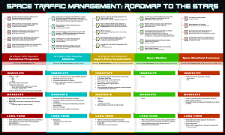Presentation Type
Paper (supporting PowerPoints may be added as Additional Files)
Location
Henderson Welcome Center
Start Date
17-1-2018 9:30 AM
End Date
17-1-2018 11:00 AM
Abstract
Already in 1983, Czech astronomer Luboš Perek suggested to "study general ideas underlying existing traffic regulation with a view to apply them to traffic in [outer space]"[1]. As this proposition is still valid today, the paper chooses to look for 'legal transplants' for a Space Traffic Management (STM) regime in the realm of maritime law. The paper's research turns to the International Maritime Organization (IMO), which is the UN specialized organization responsible for the development of global rules for shipping traffic. The IMO is recognized to be "one of the most successful organizations in developing international law for the conservation and protection of the marine environment"[2]. Under IMO, well-known treaties such as the SOLAS, MARPOL or COLREG conventions were adopted and later ratified by a large number of governments. Further, in 2017, thus only recently, the IMO Polar Code was adopted due to an increase of shipping in the polar waters. In the quest to research what can potentially be borrowed from the IMO system for a STM regime, the paper's focus is not on individual substantive traffic rules, which are by their very nature technical and not legal in content. The paper rather explores IMO's relationship to the United Nations Convention on the Law of the Sea (UNCLOS or the so-called Constitution of the oceans) and IMO's law-making process. In particular, it tries to understand the 'tacit acceptance procedure', which allows IMO to respond rapidly to new requirements in the shipping industry. In order to be sustainable over the long term, it is crucial for a STM regime to provide for flexibility, too.
[1] Luboš Perek, Traffic Rules For Outer Space, p. 37 - 43 (37), in: Proceedings of the Twenty-Fifth Colloquium on the Law of Outer Space, 1983.
[2] Md. S. Karim, Prevention of Pollution of the Marine Environment from Vessels, Switzerland, 2015, p. 15.
PPT in PDF format
The IMO system as source for legal transplants for a STM regime
Henderson Welcome Center
Already in 1983, Czech astronomer Luboš Perek suggested to "study general ideas underlying existing traffic regulation with a view to apply them to traffic in [outer space]"[1]. As this proposition is still valid today, the paper chooses to look for 'legal transplants' for a Space Traffic Management (STM) regime in the realm of maritime law. The paper's research turns to the International Maritime Organization (IMO), which is the UN specialized organization responsible for the development of global rules for shipping traffic. The IMO is recognized to be "one of the most successful organizations in developing international law for the conservation and protection of the marine environment"[2]. Under IMO, well-known treaties such as the SOLAS, MARPOL or COLREG conventions were adopted and later ratified by a large number of governments. Further, in 2017, thus only recently, the IMO Polar Code was adopted due to an increase of shipping in the polar waters. In the quest to research what can potentially be borrowed from the IMO system for a STM regime, the paper's focus is not on individual substantive traffic rules, which are by their very nature technical and not legal in content. The paper rather explores IMO's relationship to the United Nations Convention on the Law of the Sea (UNCLOS or the so-called Constitution of the oceans) and IMO's law-making process. In particular, it tries to understand the 'tacit acceptance procedure', which allows IMO to respond rapidly to new requirements in the shipping industry. In order to be sustainable over the long term, it is crucial for a STM regime to provide for flexibility, too.
[1] Luboš Perek, Traffic Rules For Outer Space, p. 37 - 43 (37), in: Proceedings of the Twenty-Fifth Colloquium on the Law of Outer Space, 1983.
[2] Md. S. Karim, Prevention of Pollution of the Marine Environment from Vessels, Switzerland, 2015, p. 15.


Comments
Visit the Governance research panel